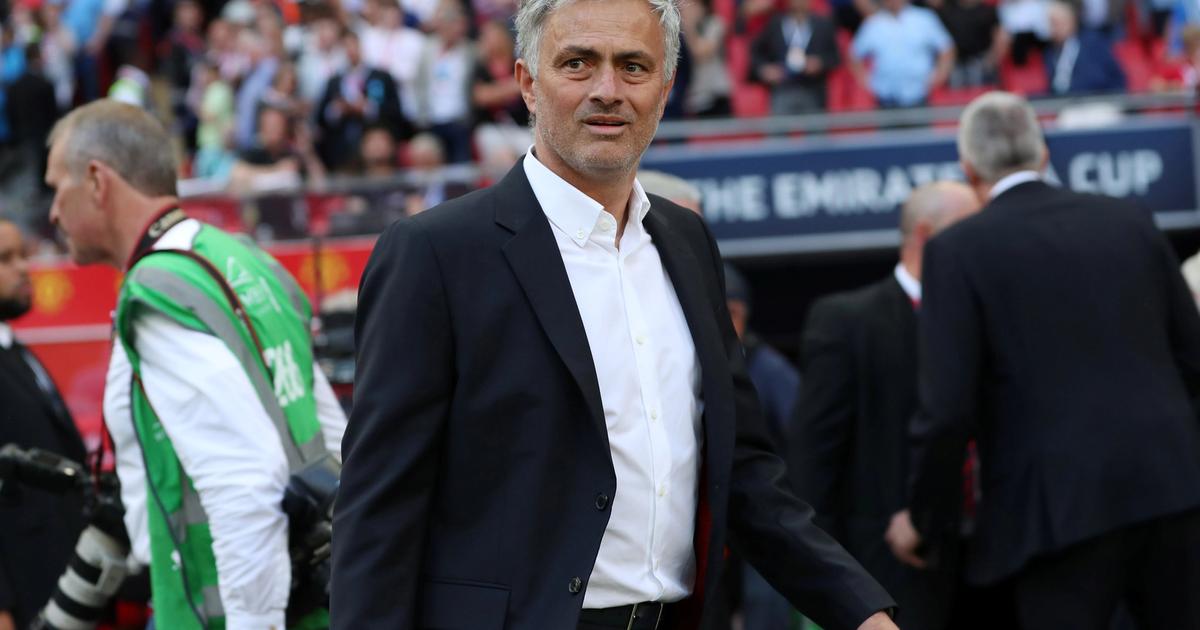REUTERS/Lee Smith
One of the major story arcs to arise from the recently finished season centred on the boring and un-United style of football served up inside Old Trafford.
José Mourinho’s prudent and overly cautious approach to the FA Cup final added further fuel for detractors to light their torches in disgust, shouting their frustrations into the sky above a theatre of broken dreams.
However, whilst United continue their slow evolution under Mourinho’s guidance, the next step promises to be the hardest.
A failure to provide sufficient solutions next season will give birth to similar frustrations, though they will become far harder to quell with the further passage of time.
Following Pep’s example
Last summer Manchester City focused the bulk of their player recruitment on securing new wing-backs. This summer, Mourinho is set to follow suit.
Despite only conceding 28 league goals, the second-best defensive record in the Premier League and a total only one more than Manchester City and eight better than third-best Tottenham, Mourinho’s side have a glaring deficiency with their defence.
REUTERS/Lee Smith
Both Ashley Young and Antonio Valencia proved capable of filling their respective defensive positions for large periods during last season, however, both players will be 33 when the first ball is kicked next season.
They will still provide adequate back-up, but new blood is desperately needed to provide increased energy and a higher standard essential for the Red Devils to compete in the biggest of games.
A potent defence
Adding defenders to make a team more attacking may seem counter-intuitive, but it’s not a far-fetched idea. Mourinho has traditionally worked from the core belief that central midfield dominance is the key to winning, a reason he often employs three centrally positioned midfielders.
The width is provided by full-backs who are given licence to roam forward and support the forwards, something both Young and Valencia have become limited at due to losing pace and stamina through the slow march of time.
This is a tactic which worked wonders for Real Madrid during the 2011/12 season, with Marcelo and Sergio Ramos providing ammunition that netted 121 league goals and collected 100 points in La Liga.
How these tactics fit into the Premier League’s latest landscape remains to be seen though.
The Dictator
If Mourinho strengthens any other area of his team this summer, it’s likely to be in midfield. Losing Michael Carrick may be relatively insignificant given his contributions to the team recently, however Marouane Fellaini also appears to be heading for the exit.
With the likes of Ander Herrera and Scott McTominay, United appear to have plenty of “destroyer” type players in their squad, but could arguably need another dictator.
REUTERS/Susana Vera
Toni Kroos is a player long-admired by Mourinho and the type to make the team tick. He’s also highly unlikely to be prised from Real Madrid’s clutches.
Someone like Lazio’s Sergej Milinković-Savić seems much more plausible. A 23-year-old who has many strings to his bow, this 6ft4 midfielder could fill the new voids of both Carrick’s technique and Fellaini’s aerial presence while fitting comfortably alongside his compatriot, Nemanja Matic.
Striker's stagnation
All of this leaves United with a relatively unchanged attacking lineup from last season. While Mourinho’s tactics are commonly cited as the reason behind the team’s poor figures, there could be another truth hidden in plain sight.
In the 21 matches played since Alexis Sánchez made his debut away to Yeovil in the FA Cup, United have averaged just over 1.4 goals per game.
REUTERS/Lee Smith
Of these 30 goals, Lukaku has scored 10. While Marcus Rashford has added four and Paul Pogba, Alexis Sánchez, and Chris Smalling each contributed another three, there’s a worrying lack of prolific scorers in the team behind the Belgian.
While Lukaku has metaphorically poked his critics in the eye with a return of 27 goals from 51 appearances this season, he is the only powerful centre-forward currently on United’s books. This makes Mourinho’s decision to stick rigidly to the same gameplan in Lukaku’s absence something of a mystery.
For a manager who is tactically astute, Mourinho has shown surprisingly little flexibility regarding United’s attacking approach recently.
REUTERS/Lee Smith
Mourinho has always favoured a strong focal point in attack, but in persisting with this approach throughout every match, he has been trying to hammer round pegs into spaces where holes don’t even exist.
United have become overly reliant on Lukaku. Without him. they simply don’t function anywhere close to their potential.
It’s showtime!
A lack of cutting edge and an inability to beat teams away from home are the main problems, on paper, which must now be resolved.
Put in another light. If Mourinho finds neither an auxiliary Lukaku nor a 'Plan B,' which incorporates his sleeker, more direct forwards, there will remain as many questions as there are answers.
With funds likely to be spent elsewhere in the team, the emphasis appears as though it will rest almost entirely on the manager’s acumen.
It was only two months ago that Mourinho spent 12 minutes of everyone’s time to regale the lack of football heritage he inherited with his latest job. He now, undeniably, has a strong foundation in place to build upon for next season.
With a few more million burning a hole in his pocket heading into the summer months, his next move will likely be the one to define his legacy with the Red Devils.
A move which will determine whether he still is a special one or merely someone who once held something special which he refuses to adapt during changing times.
Explore new topics and discover content that's right for you!
News



